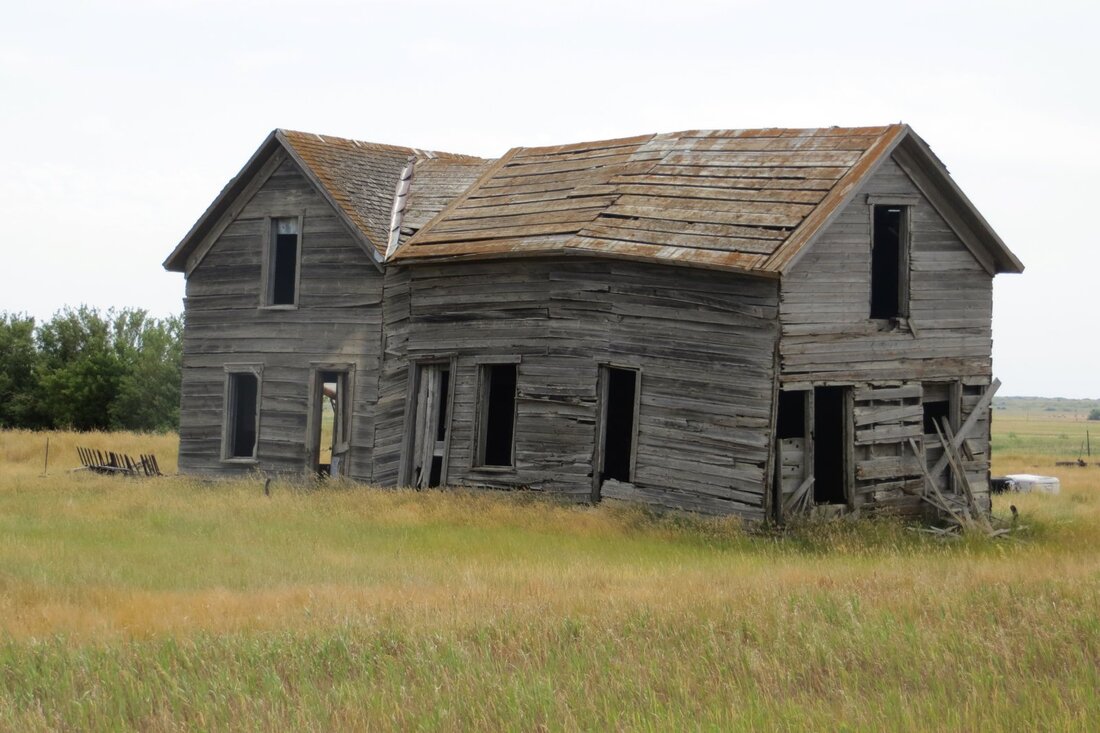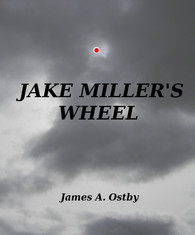Jake Miller's Wheel
|
In this Dostoyevskian novel, Jake Miller, a minor character drawn from James Ostby’s first literary work—Men With Broken Faces—is a homesteader in northeastern Montana who suffers life to a higher degree than do most people.
Uneducated, though intelligent and noble of spirit, he plods on over the open prairie and the vast wheatfields of his life, trying to find solace in farming, everyday life, and through his somewhat ironic sense of humor. Jake is haunted by both his Wheel of Life and the Fatidic Light. His Wheel of Life, more like a grindstone, is a relentless psychological encumbrance that he has had to endure from childhood. Its severity varies from mild to unbearable, though Jake has no choice but to suffer it valiantly and with little complaint. The Fatidic Light is more frightening. It is an actual hallucination that Jake first sees as a harbinger of misery and doom. Only late in life does he discover its essence. A main thread through the book is Jake’s ups and downs as he struggles for peace. |
**** The land held great promise. The promise of Elysian Plain, the ancient Greek paradise. November 15, 2014
By The Kindle Book Review
Format:Kindle Edition
"I'm here about Jake Miller."
Montana is a vast state (4th largest in the U.S.), dependent upon farming, ranching and hard rock mining. It has over 100 mountain ranges, hence its name. The summers are hot and the winters extremely cold. It is prairie country, It is Continental Divide country. In the 1930s it was Dust Bowl country, with barns, houses and souls literally buried by the howling winds.
Into this inhospitable environment, Ostby's protagonist, Jake Miller, trekked in 1913, only 24 years after Montana became a State. He planted himself 1,200 miles from his native Iowa. Why he left Iowa remains a question. But whatever the reason, it shadowed him for the rest of his life. The novel starts and ends in a grave yard.
'Jake crawled to the head of the grave, leaned against the stone marker, and pulled his knees under his chin. It was dark and cold, but the inscription on the headstone seared his back: "And know that I will wait for you."'
"As the light enveloped him, and lifted him, Jake looked down and caught one last glimpse of his mortal form."
Jake Miller's Wheel is one of those rare nuggets we stumble across very occasionally while chipping away at our personal rock piles. Ostby's writing is rich, philosophical, sometimes a bit "preachy" but always intensely interesting. How many novels can we find in the modern era that ask us to consider: "The capacity of humans to reason, and where he disagreed with Kant, on realism vs. idealism."
"Are madmen aware of their madness? Most probably aren't, so, Jake concluded–though somewhat uncertainly–that he was not crazy. But he wouldn't bet the farm on it. "
Ostby and Jake tackle "the big questions" of life and death, as well as schizophrenia, guilt, grief, searing loneliness and human strength and frailty, with intelligence and compassion in a wholly readable way.
"For as long as [Jake] could remember, even as a young child, he had felt the burden of some vague, weighty, hovering, moving, unseen part of him. Like a wheel, or–at it's worst–a grindstone, that he could neither cast off nor control."
Was it the Hindu Mandala representing the universe? Was Jake's the square within the circle or the circle within the square? We shall leave that to the reader's discretion.
Ostby takes us through the 1930s affording us a glimpse into the spare lives of the Norwegian and German farmers, the Farm Labor Party and its attendant political struggles, the prairie Lutherans and their box socials.
The characters are many and varied, some well-developed, some less so representing points of view. Ostby has peopled his novel with farmers, a sheriff, a prairie psychiatrist, a fortune teller, a medium, a doctor, alcoholics, pool players, disembodied prophetic voices and Lights.
'The wind picked up again, and this time it stayed steady from the west. There would be no rain.

